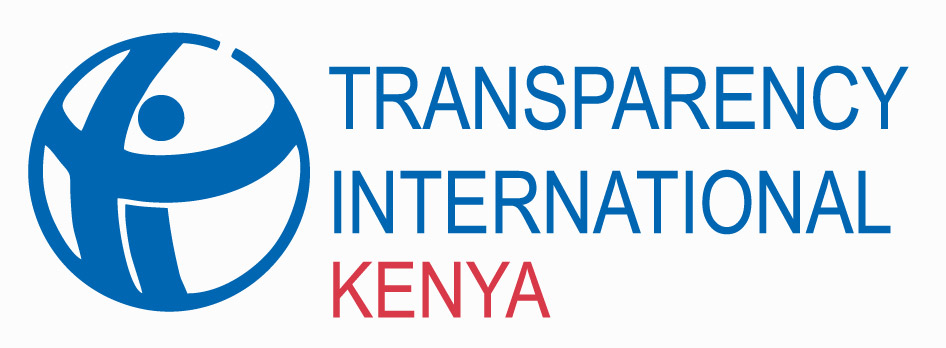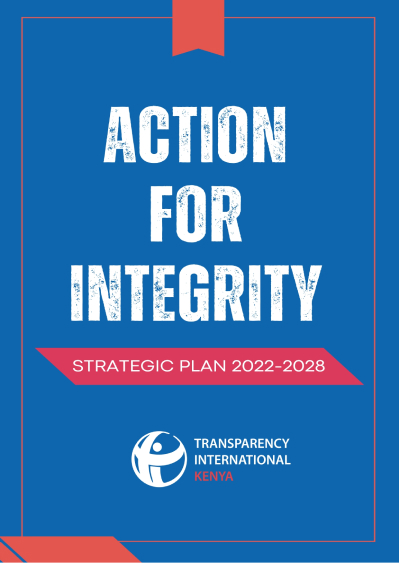The Annual Conference on Democracy and Human Rights
Category: County Governance Status Report 2016.
December 09th 2016
- The Chief Guest, Cabinet Secretary Ministry of Devolution
- The Ambassador, Embassy of Sweden
- Chairperson Council of Governors,
- Chairperson County Assembly Forum,
- Regional Manager- Diakonia,
- Country Manager-Diakonia,
- Country Manager-Forum Syd,
- Chairperson –Kenya National Commission on Human Rights,
- Distinguished Guests,
- Ladies and Gentlemen,
Transparency International-Kenya wishes to thank you for taking time off your busy schedule to join us in this important conference which brings together various groups drawn from government agencies, Independent Commissions, Civil Society Organizations and right holders from different counties.
Transparency International Kenya (TI-Kenya) is a not-for-profit organization founded in 1999 in Kenya with the aim of developing a transparent and corruption-free society through good governance and social justice initiatives. TI-Kenya is one of the autonomous chapters of the global Transparency International movement that are all bound by a common vision of a corruption-free world. Our vision is “A transparent, accountable and corruption-free Kenya”. Our current focus spreads across different sectors which include Water, Education, Humanitarian aid, Climate Finance Governance, the Police and extractive industry.
TI-Kenya is a beneficiary of resources from the Embassy of Sweden through the broader programme on Democracy Human Rights and Governance that is coordinated by Diakonia. Support to TI-Kenya focuses on interventions in the police sector, Judiciary and governance. We are pleased to be part of this great conference. Through the support TI-Kenya conducted research on the status of county governance which is the highlight of this year’s conference. The research to assess the status of governance based on levels of transparency and accountability, Integrity, Service delivery and public Participation. The assessment focused on the potential for, existence or extent of weaknesses within the county government’s systems that would pose a challenge to integrity, transparency and accountability and hamper service delivery to citizens.
The survey interviewed a total of 7,632 respondents drawn from the 47 counties. Additionally, 45 county executive officials (County secretaries, County Executive Committee members, chief of staff and chief officers ) from 36 county governments and 233 officials (Members of County Assembly, Speakers and clerks) from 46 county assemblies.
The study established that the counties are at different stages of implementation with regard to devolution. Further, the priorities vary from one county to another as such, not all the devolved functions have received equal attention. The system has experienced various challenges and on the other hand recorded successes as evidenced by the findings.
I will be giving a detailed presentation on the findings in the next session but at this point; I will highlight a few of the key findings;
KEY FINDINGS
- The survey established that there is low awareness on the role of leaders, functions of county governance and governance processes amongst the citizens as 20% reported not knowing the role of the Governor, 22% did not know the role of the Member of County assembly, 21% did not know the role of the Member of Parliament, 38% did not know the role of the Women representative and 50% did not know the role of the Senator
- A quarter of Citizens observed that the biggest success of devolution was ease of access to services /improved service delivery while 61% MCAs , 44% of speakers/clerks and 48% of the executive observed that funds and services are now closer to the people
- There is a lack of proper public participation mechanisms which is demonstrated by the low awareness on county projects and participation in meetings organized by the counties
- County health services, education, agriculture, county transport and trade development and regulation emerged as the top five services that were seen as most critical by respondents
- Twenty one percent of respondents identified roads, traffic management and bridges as the most pressing problem that should be addressed by the county governments followed by unemployment, and water and sanitation
- Level of corruption in at the county level was described as high by 61% of respondents
- The EACC was pointed out as the most trusted institution by 21% of respondents to fight corruption but it is worth noting that a similar percentage did not know which institution to trust with the task
- The Biggest failure of devolution pointed out by a quarter of citizens was that it increased corruption/Funds embezzlement while a third of MCAs noted that there was misuse of funds and poor implementation of projects. Additionally, forty percent of Speakers /Clerks also noted that corruption had increased and there was lack of proper accountability. A quarter of the Executive felt that the national government was not releasing devolved functions fully.
RECOMMENDATIONS
- There is need for awareness on the role of leaders and functions of county governments amongst the citizens
- The County governments to enhance public participation mechanisms and operationalize public participation laws where they have been enacted
- Counties to explore better communication mechanisms including technological innovations to enhance their reach by citizens
- County governments should enhance their capacity to collect revenue. Further, Counties should exercise prudence including financial capacity to support service delivery
- There is need to support initiatives that could aid in curbing corruption within the county systems. Counties should fast-track the establishment of internal audit committees to fulfil the provisions of the Public Finance Management Act.
I must say that it was the first time that we conducted a survey of this magnitude and we hope that it will go a long way in supporting interventions in various counties. TI-Kenya will therefore consider the following in moving forward the recommendations;
NEXT STEPS
- Ensure dissemination of these findings and recommendations to all the relevant stakeholders to generate awareness on the status of devolution
- Hold targeted meetings with the Ministry of Devolution, Council of Governors and County Assembly Forum among other stakeholders to discuss the best approaches to employ in sealing the gaps identified and implementing te report recommendations.
- A number of counties have requested for specific reports focusing on their counties, TI-Kenya will work on a modality to ensure that all counties that are interested in county specific data are given the information for their action
We, however, urge every stakeholder to take up a role in ensuring that these findings are taken forward based on their mandates.
Once again, thank you for granting us this opportunity to share the findings of the study and the report.
-END-


